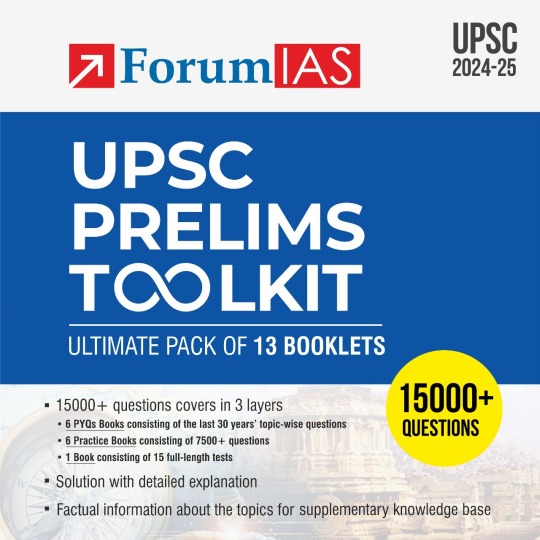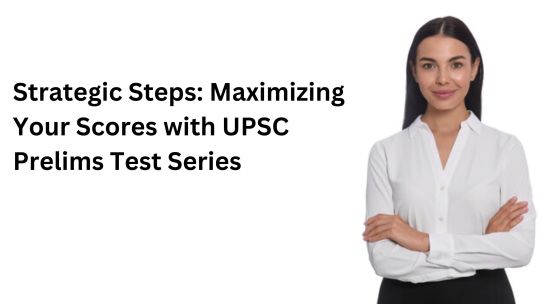#upsc exam strategy mistakes
Text
Negative Habits to Avoid for UPSC Preparation
Imagine preparing for the UPSC exam is like setting off on a thrilling adventure. But just like any adventure, there are challenges to overcome. It takes a lot of hard work, sticking to your goals, and having a good plan. But, sometimes, even if you're really trying your best, you might find yourself doing things that could make it harder for you to succeed. In this guide, we'll explore common negative habits faced by UPSC aspirants and provide straightforward solutions to overcome them. By implementing these simple strategies, aspirants can navigate through challenges effectively and achieve success in their UPSC journey.
Procrastination - Putting Off Tasks

Procrastination is when we delay tasks or waste time on unimportant things. Many UPSC aspirants struggle with procrastination, which can lead to missed study sessions and last-minute pressure.
To overcome procrastination, break your study tasks into smaller, manageable parts. To create a sense of urgency, establish particular deadlines for every task. By taking small steps consistently, you can avoid procrastination and stay on track with your study schedule.
“You may delay, but time will not.”
― Benjamin Franklin
There are always distractions, if you allow them! Successful people remain optimistic and concentrated on their goals regardless of their surroundings. They stay focused. They avoid getting distracted, which is common in today's digital world. Social media, notifications, and other distractions can easily divert our attention away from studying.
To avoid distractions, create a dedicated study space that is free from potential distractions. Turn off notifications on your phone and use productivity tools to block distracting websites. Set specific times for studying and avoid multitasking. By minimizing distractions, you can improve focus and productivity during your study sessions.
Distractions - Losing Focus

“Work is hard. Distractions are plentiful. And time is short.”
― Adam Hochschild
Lack of Consistency

Consistency is really important for doing well in UPSC preparation. It’s key to success. However, many aspirants struggle to maintain a consistent study routine.
To overcome this, establish a daily study schedule and stick to it religiously. Make sure you stick to your study schedule and give it more importance than other things. Set realistic goals for each study session and keep checking how well you're doing. By making studying a habit and sticking to a consistent routine, you can maximize your productivity and progress in your UPSC preparation.
“Success isn't always about greatness. It's about consistency.
Consistent hard work leads to success. Greatness will come.”
― Dwayne Johnson
Neglecting Health and Adequate Sleep

UPSC preparation can be mentally and physically demanding, and many aspirants neglect their health in pursuit of their goals. However, neglecting your health can have negative consequences on your ability to study effectively. Sleep is essential for cognitive function, memory retention, and overall well-being. However, many aspirants neglect their sleep in favor of studying late into the night. This can lead to sleep deprivation, which can impair your ability to focus, concentrate, and retain information.
To prioritize your health, make sure to get an adequate amount of sleep each night. Aim for at least 7-8 hours of sleep to ensure that your mind and body are well-rested. In addition, make time for regular exercise and physical activity to reduce stress and improve overall well-being. Finally, don't forget to eat a balanced diet and stay hydrated to fuel your body and brain for studying.
Relying on One Study Method

Every aspirant has their own preferred study method, whether it's reading, taking notes, or practicing past papers. However, relying solely on one study method can limit your learning and comprehension.
To overcome this, try diversifying your study methods to engage different parts of your brain. For example, if you're used to reading, try incorporating more visual aids or discussing concepts with peers. Try out various methods of studying until you discover which one suits you the most. By diversifying your study methods, you can improve your understanding and retention of the material.
Negative self-talk can be dangerous to your confidence and motivation. Many aspirants struggle with self-doubt and fear of failure, which can hold them back from reaching their full potential.
To overcome negative self-talk, practice self-compassion and positive affirmations. Instead of focusing on your shortcomings, celebrate your achievements and strengths. Be around friends and family who support you and have faith in your skills. By cultivating a positive mindset and practicing self-love, you can overcome self-doubt and achieve success in your UPSC journey.
Negative Self-Talk - Self-Doubt

"One important key to success is self-confidence.
An important key to self-confidence is preparation."
― Arthur Ashe
Trying to Read Everything

UPSC aspirants are often overwhelmed by the sheer volume of reading material available. Many aspirants feel pressured to read every book and resource on a given topic, leading to stress and burnout.
To overcome this, focus on quality over quantity when it comes to reading. Prioritize essential books and resources that cover the core concepts and topics of the UPSC syllabus. Take notes as you read to help reinforce your understanding and retention of the material. Remember, it's better to thoroughly understand a few key concepts than to skim/go through numerous resources without grasping the core concepts.
Disorganization can hinder your ability to study effectively and efficiently. Many aspirants struggle to keep track of study materials, deadlines, and important dates.
To overcome this, create a study schedule and organize your study materials in a systematic manner. Use folders, binders, or digital tools to keep your study materials organized and easily accessible. Break down your study schedule into smaller, manageable tasks and set deadlines for each task. By staying organized, you can reduce stress and improve productivity in your UPSC preparation.
Lack of Organization

“For every minute spent organizing, an hour is earned.”
― Benjamin Franklin
Misplaced Study Groups

Study groups can be a valuable resource for UPSC aspirants, providing support, motivation, and shared knowledge. However, not all study groups are created equal, and some aspirants may find themselves in study groups that are not conducive to effective studying.
To overcome this, choose study partners wisely and find individuals who are serious and committed to their UPSC goals. Look for study groups or forums where you can engage with like-minded aspirants who share your dedication and enthusiasm for UPSC preparation. By surrounding yourself with supportive and motivated study partners, you can enhance your learning and stay on track with your UPSC goals.
Overcoming negative habits is essential for UPSC aspirants to succeed in their journey. By implementing simple strategies such as breaking tasks into smaller parts, minimizing distractions, maintaining consistency, prioritizing health, diversifying learning methods, fostering a positive mindset, finding a balance between work and study, focusing on quality reading, staying organized, choosing study partners wisely, using the internet judiciously, and prioritizing sleep, aspirants can navigate through challenges effectively and achieve success in their UPSC preparation. Remember, success in the UPSC examination requires dedication, perseverance, and a willingness to overcome obstacles. Keep pushing forward, stay focused on your goals, and believe in yourself—victory is within reach!
#upsc#education#upsc2024#upscpreparation#upscstudymaterial#quotes for upsc aspirants#quotes for students motivation#Misplaced Study Groups in UPSC Preparation#Lack of Organization in UPSC Preparation#Trying to Read Everything in UPSC Preparation#Negative Self-Talk - Self-Doubt#Relying on One Study Method#Neglecting Health and Adequate Sleep in upsc preparation#Lack of Consistency in upsc preparation#Distractions in upsc preparation#procrastination in upsc preparation#Procrastination#upsc syllabus ignorance#upsc exam strategy mistakes#ENSURE IAS coaching tips#upsc self-study bad habits#upsc time management mistakes#ENSURE IAS academy tips#upsc coaching center habits to avoid#upsc study routine mistakes#UPSC#bad habits for upsc exam#common mistakes in upsc preparation#ENSURE IAS preparation tips#negative habits for upsc aspirants
3 notes
·
View notes
Text
Preparing for the UPSC Exam: A Comprehensive Guide
The UPSC (Union Public Service Commission) examination is a highly competitive and prestigious exam that attracts thousands of aspirants each year. Clearing the UPSC exam requires thorough preparation, dedication, and a strategic approach. In this blog, we’ll discuss how to prepare effectively for the UPSC exam, incorporating keywords such as “IAS coaching in Kolkata,” “UPSC coaching in Kolkata,” “best IAS coaching in Kolkata,” “top IAS coaching in Kolkata,” and “UPSC coaching in Kolkata fees.”
Understanding the UPSC Exam
Before diving into preparation strategies, it’s crucial to understand the structure and pattern of the UPSC exam:
Preliminary Examination (Prelims): This is the first stage of the UPSC exam, consisting of two objective-type papers — General Studies Paper-I and CSAT (Civil Services Aptitude Test) Paper-II.
Main Examination (Mains): Candidates who clear the prelims move on to the mains, which consists of nine descriptive papers, including Essay, General Studies (GS) Papers I, II, III, and IV, Optional Subject Paper I and II, and Indian Language and English papers.
Interview (Personality Test): Candidates who clear the mains are called for the interview stage, where their personality, communication skills, and suitability for the civil services are assessed.
Preparation Strategies for UPSC Exam
Understand the Syllabus: Familiarize yourself with the UPSC syllabus for both prelims and mains. It’s essential to know what topics are covered in each subject to create an effective study plan.
Create a Study Plan: Develop a structured study plan that covers all subjects and topics within a realistic timeframe. Allocate time for daily study, revision, and practice.
Refer to Standard Books: Invest in quality study materials, including standard textbooks, reference books, and previous years’ question papers. Choose books recommended by toppers and subject experts.
Current Affairs Preparation: Stay updated with current affairs by reading newspapers, magazines, and online portals regularly. Make notes of important events, issues, and developments for revision.
Practice Mock Tests: Take regular mock tests and practice papers to assess your preparation level, improve time management, and identify areas for improvement. Analyze your performance and learn from your mistakes.
Join a Reputable Coaching Institute: Consider enrolling in a reputed IAS coaching institute in Kolkata to supplement your self-study efforts. The best coaching centers offer structured guidance, experienced faculty, and mock test series to enhance your preparation.
Revision and Consolidation: Regularly revise and consolidate what you’ve studied to ensure retention of information. Make concise notes, mind maps, and mnemonics to aid revision.
Develop Answer Writing Skills: Practice writing answers in a structured and concise manner, adhering to UPSC’s word limit and marking scheme. Pay attention to presentation, clarity, and coherence.
Choosing the Right UPSC Coaching in Kolkata
When selecting a coaching institute for UPSC preparation in Kolkata, consider the following factors:
Reputation and Track Record: Choose a coaching center with a proven track record of producing successful UPSC candidates.
Experienced Faculty: Look for institutes with experienced faculty members who have a deep understanding of the UPSC exam and effective teaching methods.
Study Material and Test Series: Ensure the coaching institute provides comprehensive study materials, including test series and mock tests, to supplement your self-study efforts.
Fee Structure: Consider the fee structure of the coaching institute and compare it with the services offered to ensure it fits your budget and provides value for money.
Conclusion
Preparing for the UPSC exam requires dedication, perseverance, and a strategic approach. By understanding the exam pattern, creating a structured study plan, referring to standard books, staying updated with current affairs, and practicing mock tests, you can enhance your chances of success. Additionally, enrolling in a reputable IAS coaching institute in Kolkata can provide valuable guidance and support to complement your self-study efforts. Remember to stay focused, stay motivated, and believe in yourself as you embark on this challenging yet rewarding journey towards becoming a civil servant.
#upscnotes#upsc coaching in kolkata#upsc.gov.in#upscaspirants#upsc2024#upsccoaching#upsc#upscprelims#iasofficer#ias preparation#ias coaching
0 notes
Text
How much current affairs for UPSC

Introduction
Aspirants preparing for the UPSC exam often wonder about the ideal amount of current affairs they should cover. In this comprehensive guide, we delve into the significance of UPSC current affairs preparation, strategies for staying updated, and common mistakes to avoid.
Importance of Current Affairs
Current affairs form the bedrock of the UPSC exam, encompassing diverse topics ranging from national and international events to socio-economic developments. Understanding current affairs not only enriches knowledge but also fosters critical thinking and analytical skills essential for the exam.
Understanding the UPSC Exam
The UPSC exam is renowned for its rigorous selection process, comprising three stages: prelims, mains, and the interview. Current affairs play a pivotal role across all stages, serving as a determining factor in the selection process.
Duration of Current Affairs Preparation
One common query among UPSC aspirants is the amount of current affairs they should cover. While there's no definitive answer, a comprehensive approach typically involves staying updated with current affairs from the past 1-2 years leading up to the exam.
Effective Strategies for Current Affairs Preparation
Mastering current affairs necessitates a structured approach and strategic planning. Engage in daily newspaper reading, follow reputable news websites, and make use of digital platforms offering curated current affairs content.
Incorporating Current Affairs in Study Routine
Integrating current affairs study into your daily routine is essential for consistency. Allocate dedicated time slots for current affairs review, ensuring regular updates on recent events and developments.
Resources for Current Affairs Preparation
Accessing reliable sources is paramount for effective current affairs preparation. Trusted newspapers like The Hindu, websites such as PIB (Press Information Bureau), and UPSC-specific magazines offer valuable insights and analysis.
Analyzing Previous Year's Questions
Analyzing past UPSC papers provides invaluable insights into the exam pattern and question trends. Focus on understanding the type of questions asked and the areas frequently covered in current affairs.
Role of Current Affairs in Different Stages of UPSC
Current affairs play a distinct role in each stage of the UPSC exam. From the conceptual clarity required in prelims to the depth of analysis in mains and the interview, staying updated is indispensable.
Balancing Current Affairs with Other Subjects
While current affairs hold significant weightage, it's crucial to strike a balance with other subjects. Allocate time proportionally based on the syllabus and prioritize areas of weakness.
Common Mistakes to Avoid in Current Affairs Preparation
Avoid common pitfalls such as relying solely on online sources, neglecting revision, and overlooking international affairs. Maintain a structured approach to ensure comprehensive coverage.
Tracking Progress
Regularly assess your current affairs preparation progress through quizzes, mock tests, and self-assessment.
Conclusion
In conclusion, the optimal amount of current affairs for UPSC preparation depends on various factors such as the exam timeline and individual study habits. By adopting effective strategies, avoiding common pitfalls, and staying updated with reliable sources, aspirants can enhance their preparation and increase their chances of success in the UPSC exam.
This article was originally published by medium.com/@upsccourses. Read the original article here.
youtube
0 notes
Text
The UPSC Prelude: How Prelims Test Series Paves the Way for Success

The journey to conquer the Union Public Service Commission (UPSC) examination, one of India's most challenging and prestigious competitive exams, begins with a critical first step: the Preliminary examination, or Prelims. This stage serves as a gateway to the Mains and eventually, the interview round, making it crucial for aspirants to employ strategic preparation methods. Among these, enrolling in the best test series for UPSC Prelims has emerged as a non-negotiable tool in the arsenal of successful candidates. This article delves into how UPSC Prelims test series are pivotal in paving the path to success, offering insights into their structure, benefits, and strategies for optimal utilization.
The Strategic Edge of UPSC Prelims Test Series
Test series for UPSC Prelims are meticulously designed to mirror the pattern, difficulty level, and scope of the actual exam. By simulating the real exam environment, these test series offer a practical experience that is invaluable for aspirants. Engaging with a high-quality UPSC Prelims test series equips candidates with several strategic advantages.
Familiarity with Exam Pattern and Time Management
One of the primary benefits of participating in the test series is gaining familiarity with the UPSC Prelims exam pattern. It helps aspirants understand the type of questions asked, the distribution of marks, and the critical areas of focus. Moreover, practicing with timed tests improves time management skills, enabling candidates to allocate their time wisely across questions and avoid last-minute rushes that could lead to mistakes.
Identification of Strengths and Weaknesses
Regular participation in a test series for UPSC Prelims helps candidates identify their strong and weak areas within the vast syllabus. This self-awareness allows for targeted improvement, enabling aspirants to focus their preparation on areas that need more attention, thereby optimizing their study strategy.
Boosts Confidence and Reduces Exam Anxiety
The familiarity and comfort developed through consistent practice with test series can significantly boost an aspirant's confidence. It also helps in reducing exam anxiety, a common challenge faced by many. The psychological readiness achieved through repeated exposure to exam-like conditions is invaluable on the actual exam day.
Enhanced Accuracy and Efficiency
The best test series for UPSC Prelims are designed to challenge aspirants, encouraging them to think critically and improve their problem-solving speed. This practice enhances accuracy and efficiency, crucial elements for success given the negative marking scheme in the Prelims.
Real-time Feedback for Continuous Improvement
Many UPSC Prelims test series offer detailed analysis and feedback on performance, providing insights into not just what questions were answered incorrectly, but why. This feedback mechanism allows for continuous learning and improvement, enabling aspirants to refine their strategies, knowledge, and exam-taking skills progressively.
Choosing the Best Test Series for UPSC Prelims
With numerous options available, selecting the best test series for UPSC Prelims requires careful consideration. Look for test series that:
Are created by experienced educators and successful UPSC veterans.
Cover the entire syllabus comprehensively.
Include questions of varying difficulty levels, from basic to advanced.
Provide detailed explanations and feedback for each test.
Offer an online platform for practice to simulate the actual exam environment closely.
Incorporating Test Series into Your Preparation Strategy
To maximize the benefits of UPSC Prelims test series, incorporate them strategically into your study plan. Begin taking tests early in your preparation phase to build a strong foundation and gradually increase the frequency as the exam approaches. Use the feedback from each test to guide your studies and ensure that you revise not just the questions you got wrong but also the ones you got right, to reinforce your knowledge.
Conclusion
The UPSC Prelims examination is a formidable challenge, but one that can be surmounted with diligent preparation and the right tools. Best test series for UPSC Prelims are more than just practice tests; they are a comprehensive preparation tool that offers familiarity with the exam pattern, improves time management, identifies strengths and weaknesses, boosts confidence, and enhances accuracy and efficiency. Choosing the best test series and integrating it into your preparation strategy can significantly pave your way to success in the UPSC journey. As you embark on this challenging yet rewarding path, remember that the key to success lies in consistent practice, continuous learning, and strategic improvement.
0 notes
Text
Mastering the UPSC Mains: Effective Strategies for Test Series Preparation

Start Early, Practice Regularly: Begin your test series for upsc mains preparation well in advance of the exam. Regular practice ensures familiarity with the exam pattern, builds endurance, and identifies weak areas early on.
Simulate Exam Conditions: Replicate the exam environment as closely as possible during mains test series. Sit in a quiet room, strictly adhere to time limits, and avoid distractions to simulate the pressure of the actual exam.
Analyze Previous Papers: Reviewing previous years' UPSC Mains papers is crucial. Analyze question trends, topic weights, and areas of focus. This helps in understanding the exam pattern and tailoring your preparation accordingly.
Focus on Comprehensive Revision: Use test series not only for assessing your knowledge but also for revision. After taking a test, thoroughly review each question, whether answered correctly or not. This reinforces learning and helps in retaining information.
Work on Time Management: UPSC mains test series is as much about time management as it is about knowledge. Practice allocating time to different sections based on their weightage and difficulty level. Learn to prioritize questions and avoid spending too much time on any single question.
Seek Quality Feedback: Opt for test series that provide detailed feedback and analysis. Understand your mistakes, learn from them, and strive for improvement. Additionally, consider joining forums or study groups where you can discuss questions and strategies with peers.
Maintain Consistency: Consistency is key to success in UPSC Mains preparation. Schedule regular test-taking sessions, review them diligently, and adjust your study plan based on feedback.
Emphasize Conceptual Clarity: While practicing through test series, focus on understanding concepts rather than rote memorization. This not only aids in answering diverse questions but also enhances problem-solving skills.
Stay Updated with Current Affairs: UPSC Mains tests your awareness of current events and their implications. Integrate current affairs preparation into your test series routine to ensure holistic preparation.
Stay Positive and Persistent: Lastly, maintain a positive attitude throughout your test series preparation. Ups and downs are part of the journey, but persistence and a positive mindset will ultimately lead to success.
Conclusion: Effective preparation for the upsc mains test series examination requires a multi-faceted approach, with test series playing a pivotal role. By adopting the strategies outlined above and approaching test series with dedication and focus, aspirants can not only gauge their readiness for the exam but also enhance their chances of success. Remember, each test is an opportunity to learn, grow, and inch closer to your goal of cracking the UPSC Mains examination.
0 notes
Text
Unveiling the Secrets of Previous Year Question Papers with Forum IAS

The Significance of UPSC Prelims Previous Year Question Papers
This subheading delves into the importance and relevance of using previous year question papers in your UPSC Prelims preparation. It highlights how these papers are not just a collection of questions but rather an essential tool for aspirants. Here's an explanation of what this subheading conveys:
Pattern Familiarity: Previous year question papers provide a comprehensive overview of the pattern, structure, and format of the UPSC Prelims Previous Year Question Papers. By reviewing these papers, aspirants gain a clear understanding of the types of questions asked, the distribution of topics, and the marking scheme.
Real Exam Simulation: Solving previous year papers simulates the actual examination experience. It allows aspirants to become familiar with the time constraints, pressure, and environment they will encounter on the exam day, thereby reducing anxiety and boosting confidence.
Identifying Trends: These papers can reveal trends in the topics or subjects that are frequently tested by UPSC. Analyzing these trends can help aspirants prioritize their study and allocate their time and resources effectively.
Assessing Preparedness: Aspirants can use previous year papers to self-assess their level of preparation. By attempting these questions, they can gauge their strengths and weaknesses in various subjects, allowing for targeted revision.
Learning from Mistakes: Mistakes made while solving previous year papers provide invaluable learning opportunities. Understanding why an answer was incorrect helps in reinforcing concepts and improving accuracy.
Optimizing Study Material: By reviewing these papers, aspirants can better tailor their study materials, ensuring that they focus on the most relevant and frequently tested topics.
In summary, understanding the significance of UPSC Prelims previous year question papers is essential for aspirants because it equips them with insights into the examination's nuances, boosts their confidence, and aids in effective planning and preparation.
Decoding the Examination Pattern
In the context of UPSC Prelims, "Decoding the Examination Pattern" refers to the process of understanding and unraveling the structure and characteristics of the examination. Here's a more detailed explanation of what this subheading entails:
Understanding Question Types: Deciphering the examination pattern involves recognizing the types of questions commonly asked in UPSC Prelims. It includes identifying whether questions are objective (multiple-choice) or have a different format, such as matching, assertion-reasoning, or comprehension-based.
Distribution of Subjects and Topics: It also involves understanding how UPSC distributes questions across different subjects and topics. This includes recognizing the proportion of questions related to history, geography, polity, economy, science and technology, environment, current affairs, and more.
Weightage of Topics: Analyzing the examination pattern helps aspirants determine which topics or areas carry greater weightage and are more likely to be asked in the exam. This knowledge allows candidates to prioritize their study efforts effectively.
Trends in Difficulty Levels: By decoding the pattern, aspirants can identify whether UPSC tends to ask more straightforward questions or if it prefers complex and challenging ones. Recognizing these trends helps in fine-tuning preparation strategies.
Time Management: Understanding the pattern aids in time management during the actual exam. Aspirants can allocate their time wisely to different sections based on the expected distribution of questions and their own strengths and weaknesses.
Adaptation and Preparation: Armed with insights into the examination pattern, candidates can adapt their study plans and focus on areas where they need improvement. It allows for a more targeted and efficient approach to covering the syllabus.
Mock Tests and Practice: Decoding the pattern also helps in creating more realistic and effective mock tests and practice papers. This, in turn, ensures that the practice questions align closely with the actual exam, providing a valuable experience for aspirants.
In essence, "Decoding the Examination Pattern" is a critical step in UPSC Prelims preparation as it provides aspirants with the roadmap to understand what to expect and how to best prepare for the challenging examination. It allows candidates to strategize, practice, and allocate their resources efficiently, increasing their chances of success.
Strategies for Effective Utilization
in the context of "Unveiling the Secrets of Previous Year Question Papers with Forum IAS" pertains to providing guidance and insights on how UPSC aspirants can make the best use of the previous year question papers as a valuable resource in their preparation.
Under this subheading, the article or discussion might cover various strategies, such as:
Solving Timelines: Providing a recommended timeline for going through the previous year question papers, including when to start, how many papers to tackle each day or week, and when to complete the entire set.
Focus Areas: Identifying specific areas or subjects within the syllabus where the previous year papers are most helpful and should be emphasized during preparation.
Self-Assessment: Discussing methods to self-assess performance while solving these papers, including keeping track of mistakes, marking areas that need further study, and noting improvement over time.
Simulation of Exam Conditions: Advising on how to simulate exam conditions while solving these papers, which can help in acclimatizing to the actual exam environment.
Note-Taking Techniques: Suggesting effective note-taking strategies to capture key learnings, important questions, and specific areas that require attention.
Comparative Analysis: Explaining how to compare one's answers with the official answer key and highlighting the importance of understanding why certain answers were correct and others weren't.
Feedback Loop: Encouraging aspirants to seek feedback from mentors, peers, or online communities like Forum IAS to gain additional perspectives on their performance.
Time Management: Offering tips on how to manage time while solving these papers and strategies for increasing efficiency.
Consistency and Regularity: Stressing the significance of consistent practice with previous year papers as part of a well-rounded preparation strategy.
Overall, the subheading "Strategies for Effective Utilization" aims to guide UPSC aspirants on how to optimize their use of previous year question papers, making them an integral and productive part of their preparation journey.
How to Analyze and Learn from Mistakes
refers to the section in the content that discusses the process of reviewing and understanding the errors and incorrect answers made while practicing UPSC Prelims previous year question papers.
In the context of UPSC exam preparation, analyzing and learning from one's mistakes is a crucial aspect. Here's what this subheading would cover:
Error Identification: This section would delve into methods for identifying the specific types of mistakes made in practice tests. It might include common errors like misinterpretation, lack of knowledge, or time management issues.
Root Cause Analysis: It would explore how to dig deeper into the reasons behind making those mistakes. For instance, if the mistake was due to a lack of knowledge, how can you address that gap? If it was related to time management, what strategies can be employed to improve?
Tracking Progress: Discussing the importance of maintaining a record of your mistakes and progress. This could be through a dedicated notebook or software, where you document what you got wrong and your thought process during that moment.
Learning from Errors: Exploring strategies to learn from these mistakes, such as revisiting study materials, seeking clarification from experts, or doing additional research on topics that caused confusion.
Avoiding Repetition: Discussing how to ensure that the same mistakes are not repeated in subsequent practice tests. It could include strategies for strengthening one's weak areas.
Improving Confidence: Understanding how learning from mistakes can enhance confidence and decision-making during the actual exam.
This subheading would essentially guide UPSC aspirants on how to turn their mistakes into opportunities for growth and improvement, making the process of practicing with previous year question papers more effective and rewarding. It's a key component in the journey to success in UPSC Prelims.
Expert Tips from Forum IAS
refers to a section of the content or forum discussion where Forum IAS, an institution or platform specializing in UPSC exam preparation, shares valuable insights, strategies, and guidance with aspirants preparing for the UPSC Prelims examination. These tips come from experts or experienced individuals associated with Forum IAS who have a deep understanding of the examination and have helped numerous candidates succeed in their UPSC journey.
In this section, readers can expect to find advice on various aspects of UPSC Prelims preparation, such as time management, subject prioritization, study techniques, and effective ways to approach previous year question papers. These tips are often based on a combination of the expertise of the institution and the experiences of successful candidates who have been through the UPSC process.
The purpose of this section is to provide aspirants with actionable recommendations and strategies that can enhance their preparation, increase their chances of success, and improve their overall performance in the UPSC Prelims. It serves as a valuable resource for those looking to gain a competitive edge in one of the most challenging and prestigious civil service examinations in India.
Building Confidence through Practice
within the article "Unveiling the Secrets of Previous Year Question Papers with Forum IAS" emphasizes the importance of consistent practice with UPSC Prelims previous year question papers to boost an aspirant's self-assurance and readiness for the actual exam. Here's a more detailed explanation:
Practice as a Confidence Booster: Solving previous year question papers is a crucial aspect of UPSC Prelims preparation. It not only familiarizes candidates with the exam format but also aids in building confidence. Aspirants gradually become more comfortable with the type of questions asked, the time constraints, and the overall feel of the exam.
Improving Accuracy: Regular practice helps in refining one's accuracy and precision. It allows candidates to understand their strong and weak areas, thereby increasing their confidence in answering questions correctly. With each practice session, candidates tend to make fewer mistakes, which in turn enhances their self-assurance.
Time Management Skills: Consistent practice enables aspirants to manage their time effectively during the actual exam. They learn to allocate time to each section and question, reducing the stress associated with time constraints. As they become adept at managing time during practice sessions, their confidence in tackling the real exam grows.
Overcoming Exam Anxiety: Practicing with previous year question papers can help reduce exam-related anxiety. Aspirants who have regularly practiced tend to approach the UPSC Prelims with a calm and collected mindset. They trust in their preparation and are better equipped to handle any surprises the exam may throw at them.
Learning from Mistakes: Through practice, candidates can identify areas where they tend to make mistakes. This self-awareness is a key aspect of building confidence. Aspirants can then work on these weaknesses, improving their overall performance.
Building Mental Resilience: The more one practices, the better they become at handling the ups and downs of the preparation journey. This mental resilience further boosts confidence, as candidates realize that they can overcome challenges and setbacks.
Track Record of Success: Successfully solving previous year question papers and consistently improving one's scores can be a significant confidence booster. Aspirants can take pride in their progress and use it as motivation to keep moving forward.
In essence, "Building Confidence through Practice" highlights the transformative power of regular practice with UPSC Prelims PYQ. It not only hones the skills necessary to excel in the exam but also instills the belief that success is within reach, motivating candidates to give their best in the UPSC Prelims.
0 notes
Text
CDS -2 2023 Result
Introduction to CDS Exam and Its Significance
The Combined Defence Services (CDS) exam, conducted by the Union Public Service Commission (UPSC), stands as a pivotal moment in the lives of thousands of aspirants. This exam opens the doors to prestigious careers in the defense forces of India, making it a highly sought-after opportunity.
Anticipation and Excitement Around CDS Results
The period leading up to the release of CDS results is marked by heightened anticipation and excitement. Candidates invest significant effort, time, and dedication in their preparation, making the outcome a matter of utmost importance.
Check Result Here- https://www.defenceguru.co.in/notifications/cds-2-2023-written-exam-result-out
Importance of CDS Results in Career Aspirations
The CDS results have a profound impact on the career aspirations of candidates. Successful candidates move forward with their dreams of serving the nation, while those who don’t make it this time face the challenge of reevaluating their strategies and persevering for the next attempt.
How CDS Results Impact Candidates’ Lives
For many, the CDS results can be life-changing. Success leads to a career filled with honor, challenges, and opportunities for personal and professional growth. On the other hand, not making it this time can be disheartening, urging aspirants to analyze their performance critically and prepare better for future attempts.
The Process of CDS Result Announcement
The process of CDS result announcement is meticulous and involves various stages of evaluation. UPSC follows a transparent and standardized approach to ensure fairness and accuracy in the assessment of candidates' performance.
Common Emotions Among CDS Aspirants Before the Result
As the result date approaches, candidates experience a mix of emotions, including anxiety, hope, and nervousness. The wait for the outcome of their hard work is both exciting and nerve-wracking.
Preparations After the Announcement of CDS Results
Upon the announcement of results, successful candidates embark on a rigorous journey of medical examinations, interviews, and training. The preparation for these subsequent stages requires as much dedication and focus as the initial exam.
Strategies to Cope with Various Outcomes
For those who make it, celebrations are followed by rigorous training and mental preparation for the challenges ahead. For those who don’t succeed, it's essential to maintain a positive mindset, learn from mistakes, and persevere for future attempts.
Expert Opinions on Interpreting CDS Results
Experts often stress the importance of analyzing results critically. Understanding areas of improvement and strengths can significantly enhance future preparations and increase the chances of success in subsequent attempts.
The Role of Social Media and Online Communities
Social media platforms and online communities play a significant role in connecting aspirants, providing valuable insights, and sharing experiences. These platforms serve as support systems and knowledge-sharing hubs for candidates preparing for defense exams.
CDS coaching in Dehradun not only provides academic support but also molds the character and personality of aspirants. The holistic approach to preparation ensures that candidates not only clear the exam but also become competent and confident leaders in the armed forces.
Best CDS Coaching in Dehradun: Shaping Defense Aspirants into Leaders
Introduction to CDS (Combined Defence Services) Exam
The CDS exam, conducted by the UPSC, is the gateway for those aspiring to serve in the prestigious Indian Armed Forces. Aspirants often seek professional coaching to enhance their chances of success in this highly competitive examination.
Importance of CDS Coaching
CDS coaching plays a pivotal role in providing structured guidance, comprehensive study materials, and a competitive environment essential for rigorous preparation.
Why Dehradun is a Hub for CDS Coaching
Dehradun, nestled in the picturesque Himalayan foothills, has emerged as a hub for CDS coaching due to its serene environment, focused learning atmosphere, and the presence of reputed coaching centers.
Characteristics of the Best CDS Coaching Centers
a. Experienced and Expert Faculty
The best coaching centers boast experienced faculty members, often retired defense personnel, who provide invaluable insights and mentorship.
b. Comprehensive Study Materials and Resources
High-quality study materials, curated by experts, cover all aspects of the CDS syllabus, aiding in effective preparation.
c. Personalized Attention and Mentorship
Individual attention and mentorship from experienced trainers are crucial for addressing students' specific needs and challenges.
Success Rate and Alumni Network
Centers with a high success rate and a strong alumni network are indicative of their credibility and effectiveness in coaching.
Focus on Physical Fitness and Personality Development
CDS coaching is not limited to academics; it also emphasizes physical fitness training and personality development sessions to prepare candidates holistically.
Technological Integration in Coaching Methods
The best coaching centers leverage technology, incorporating interactive online classes, mock tests, and real-time progress tracking to enhance learning experiences.
Reviews and Testimonials: A Testimony to Excellence
Positive reviews and testimonials from previous students are a testament to the coaching center’s efficacy and the success stories it has nurtured.
Tips for Choosing the Right CDS Coaching Center
Research Thoroughly: Investigate coaching centers online, read reviews, and visit if possible to assess the facilities and faculty.
Talk to Alumni: Connecting with alumni can provide firsthand insights into the coaching center's teaching methodology and support system.
Free Demo Classes: Opt for coaching centers offering free demo classes to evaluate the teaching style and faculty expertise.
Online vs. Offline Coaching: Pros and Cons
Online Coaching:
Pros: Flexibility, accessibility, and a wide range of resources.
Cons: Limited personal interaction, potential distractions.
Offline Coaching:
Pros: Structured learning, face-to-face interaction, disciplined environment.
Cons: Commuting, fixed schedule, limited flexibility.
Frequently Asked Questions About CDS Results
Q1: How are CDS results calculated?
CDS results are calculated based on a predetermined marking scheme, evaluating candidates' performance in written exams, interviews, and medical tests.
Q2: What is the pass percentage for CDS exams?
The pass percentage varies each year, depending on the number of vacancies and candidates' performance.
Q3: Can I request a reevaluation of my CDS result?
No, the results announced by UPSC are final and cannot be reevaluated.
Q4: How long is the validity of CDS results?
CDS results are valid for one year, allowing candidates to apply for subsequent exams within this timeframe.
Q5: What is the minimum score required to qualify for CDS exams?
The minimum qualifying marks vary each year and are determined by UPSC based on the overall performance of candidates.
Conclusion: Navigating the Journey After CDS Results
In conclusion, the anticipation and eventual release of CDS results mark significant milestones in the lives of aspiring defense officers. Success requires not just academic knowledge but also mental resilience, perseverance, and a positive attitude. For those eagerly waiting for their results, it's essential to remember that success is a journey, not a destination. Each attempt, regardless of the outcome, provides valuable lessons and shapes a brighter future.
0 notes
Text
Mastering the IAS Exam: Coaching Tips and Tricks
Becoming an Indian Administrative Service officer is a dream that beckons many. The journey to achieving this prestigious position is, however, laden with challenges and complexities. IAS coaching plays a pivotal role in helping aspirants navigate the vast and demanding syllabus of the Union Public Service Commission (UPSC) exam. In this blog, we'll explore some essential tips and tricks for mastering the exam through coaching.

1. Choose the Right Coaching Institute:
The first step in your IAS coaching journey is choosing the right institute. Research thoroughly, read reviews, and consider factors such as faculty experience, past results, and course offerings. The right coaching institute will provide you with the guidance and resources you need to excel.
2. Understand the Syllabus:
The UPSC syllabus is extensive and covers a wide range of subjects. To master the exam, you must have a deep understanding of the syllabus. Divide it into manageable sections and create a study plan that ensures comprehensive coverage of each topic.
3. Effective Time Management:
Time management is a critical aspect of preparation. Create a well-structured study schedule that allocates sufficient time to each subject. Prioritize your weakest areas while not neglecting your strengths.
4. Practice Mock Tests:
Mock tests are invaluable for IAS preparation. They simulate the exam environment and help you become familiar with the format and timing. Regularly take mock tests to evaluate your progress and identify areas that need improvement.
5. Current Affairs Mastery:
Stay updated with current affairs on national and international levels. A strong understanding of current events and their implications is crucial for both the preliminary and mains exams. Read newspapers, magazines, and watch news programs regularly.
6. Answer Writing Practice:
Mains require effective answer writing skills. Practice writing answers regularly to improve your articulation, presentation, and time management. Seek feedback from mentors or peers to refine your writing style.
7. Revise and Revise Again:
Revision is the key to retention. Regularly revise what you've studied to ensure you don't forget important information. Create concise notes that are easy to review.
8. Join Discussion Groups:
Engage in discussion groups, forums, or study circles with fellow aspirants. Sharing knowledge, discussing topics, and debating issues can enhance your understanding and provide valuable insights.
9. Stay Motivated and Persistent:
The IAS exam is a marathon, not a sprint. There will be ups and downs, but it's essential to stay motivated and persistent throughout the journey. Surround yourself with positive influences and remember your long-term goals.
10. Learn from Mistakes:
Mistakes are part of the learning process. Don't be discouraged by setbacks. Instead, use them as opportunities for growth. Analyze your mistakes, adapt your strategies, and keep moving forward.
Conclusion
Mastering the exam is a formidable challenge, but with the right coaching and a strategic approach, it's an achievable goal. Keep in mind that while coaching can provide guidance and structure, your dedication, hard work, and perseverance will ultimately determine your success.
0 notes
Text
UPSC Exam Preparation with DIADEMY IAS and UPSC Commerce Solved Question Papers
The UPSC (Union Public Service Commission) examinations are a coveted gateway to a prestigious career in civil services. As you embark on your journey to conquer these exams, the right resources and strategies can make all the difference. In this article, we'll explore the invaluable role that UPSC Commerce Solved Question Papers from DIADEMY IAS can play in your preparation.
Why Commerce as an Optional Subject?
Choosing Commerce as your optional subject can be a game-changer. It offers a structured and logical approach to answering questions, increasing your scoring potential. However, mastering this subject requires more than just textbooks; it requires practice, and this is where UPSC Commerce Solved Question Papers come into play.
The Power of Solving Previous Year's Papers
Solving previous year's papers is a proven strategy for UPSC success. It assists in grasping the examination structure, the nature of inquiries posed, and the level of expertise needed. DIADEMY IAS recognizes the significance of this practice and provides an extensive collection of UPSC Commerce Solved Question Papers.
Why Choose DIADEMY IAS for UPSC Commerce Solved Question Papers?
1. Comprehensive Coverage: DIADEMY IAS's collection includes solved papers from multiple years, ensuring that you cover a wide range of topics and question types.
2. Detailed Solutions: Each paper comes with detailed solutions, enabling you to learn from your mistakes and improve your problem-solving skills.
3. Timed Practice: Practicing with these papers under timed conditions will help you manage your time effectively during the actual exam.
4. Current Relevance: UPSC exams often reflect contemporary issues. DIADEMY IAS ensures that their solved papers stay updated, aligning with the latest trends in the field.
How to Make the Most of UPSC Commerce Solved Question Papers:
1. Start Early: Begin solving these papers well in advance of your exams to track your progress over time.
2. Analyze Your Performance: After each practice session, analyze your performance to identify weak areas that require further study.
3. Simulate Exam Conditions: Practice under exam-like conditions to get a feel for the actual UPSC exam environment.
4. Learn from Mistakes: Review the solutions provided in the UPSC Commerce Solved Question Papers to understand the correct approach to solving questions.
In Conclusion
DIADEMY IAS's UPSC Commerce Solved Question Papers are your secret weapon in UPSC exam preparation. They offer a structured and effective way to enhance your knowledge, hone your problem-solving abilities, and ultimately boost your chances of success in these highly competitive exams.
As you aspire to join the ranks of India's civil servants, remember that a well-rounded preparation strategy is key. With DIADEMY IAS's UPSC Commerce Solved Question Papers, you're not just practicing; you're refining your skills, gaining insights, and inching closer to
0 notes
Text
Common mistakes while preparing for UPSC exams.

Getting eligible for any government job is extremely challenging. UPSC Civil Services Exam in India demands hard work and dedication to become one of the top civil servants. One who aspires to attain this status must strive for perfection. However, perfection is the result of multiple intelligent actions, and the ability to recognize mistakes and learn from failures.
After careful observation, conducting interviews, and analyzing reports, we have identified some
Common mistakes made by candidates while preparing for UPSC exams.
Whether students make these mistakes voluntarily or unwittingly, they can be avoided with the right guidance, a sound strategy, and a well-defined routine.
Read More -
https://www.k3ias.com/common-mistakes-to-avoid-during-upsc-preparation/
0 notes
Text
Unlocking Success with UPSC Mock Test Series
RIIM Academy's Prelims Test Series is a valuable resource for students of the UPSC Civil Services Examination. Let's explore the benefits of this test series and how it can help you in your preparation.
What is a Prelims Test Series?
A Prelims Test Series is a curated set of mock tests designed to simulate the actual UPSC Prelims Examination. It covers the syllabus, pattern, and difficulty level of the exam, allowing you to evaluate your performance and identify areas for improvement.
Why is a Prelims Test Series useful?
The Prelims Test Series offered by RIIM Academy is useful for several reasons:
1. Comprehensive Coverage: The test series covers the entire syllabus of the UPSC Prelims Examination, ensuring that you have a holistic understanding of all the relevant subjects and topics.
2. Exam-like Experience: By taking mock tests, you can familiarize yourself with the pressure and challenges of the actual exam. It helps you develop the required exam temperament, confidence, and time management skills.
3. Self-Assessment: The test series enables you to assess your knowledge, strengths, and weaknesses accurately. By analyzing your performance in each test, you can identify areas that need improvement and focus your efforts accordingly.
4. Practice and Revision: Regularly taking mock tests allows you to practice and revise the concepts and topics covered in the exam. It helps in powerful your understanding and retention of crucial information.
5. Performance Analysis: RIIM Academy's Prelims Test Series provides detailed solutions and performance analysis for each test. You can review your answers, understand the correct approach, and learn from your mistakes. The performance analysis helps you track your progress, identify patterns, and measure your performance against other aspirants.
6. Time-bound Preparation: The test series follows a scheduled timeline, ensuring that you have stick to a disciplined study plan. It helps you stay on track and complete your syllabus within the given timeframe.
How to make the best use of a Prelims Test Series?
To make the best use of RIIM Academy's Prelims Test Series, consider the following tips:
1. Consistency and Discipline: Follow a regular study schedule and take mock tests at regular intervals. Consistency is key to improving your performance and staying on track.
2. Thorough Analysis: After each mock test, analyze your performance in detail. Understand the concepts you missed and revise them to strengthen your knowledge base. Take note of common mistakes or areas where you consistently face difficulties.
3. Revision and Practice: Use the test series as an opportunity to revise and practice the concepts covered. Focus on your weak areas and allocate more time for their improvement.
4. Learn from Solutions: Study the solutions provided for each test. Understand the reasoning behind the correct answers and clarify any doubts. This will help you enhance your problem-solving skills and approach questions more effectively.
5. Time Management: Practice managing your time efficiently during the mock tests. Develop strategies to tackle different question types and allocate the appropriate time to each section.
6. Seek Guidance: If you have any doubts or need clarification, reach out to mentors or subject matter experts. They can provide valuable guidance and help you overcome challenges.
7. RIIM Academy's Prelims Test Series offers comprehensive coverage, detailed solutions, performance analysis, and expert guidance, making it a valuable tool for your UPSC Prelims preparation. By leveraging these resources effectively and following a disciplined approach, you can boost your chances of success in the exam.
#best upsc classes in pune#top upsc classes in pune#ias ips coaching center in pune#upsc classes in pune#ias ips coaching classes in pune#ias ips coaching institute in pune
0 notes
Text
Aiming for Air 1 in UPSC: Strategies for Success
Securing the prestigious All India Rank 1 (AIR 1) in the UPSC (Union Public Service Commission) examination is the ultimate goal for many aspirants. Achieving this feat requires not only dedication and perseverance but also a strategic approach to preparation. In this blog post, we’ll delve into effective strategies that can help candidates aim for and achieve AIR 1 in UPSC, including the role of the best IAS coaching in Kolkata, leveraging value addition material, and staying updated with current affairs magazines.
1. Set Clear Goals and Plan Strategically:
Before embarking on the UPSC preparation journey, it’s essential to set clear goals and create a strategic plan to achieve them. Define your study objectives, identify strengths and weaknesses, and develop a structured study schedule that allocates sufficient time to cover all aspects of the UPSC syllabus.
2. Choose the Best IAS Coaching in Kolkata:
Enrolling in the best IAS coaching in Kolkata can provide valuable guidance, mentorship, and resources to streamline your preparation. Research and select coaching centers with experienced faculty members, comprehensive study materials, and a track record of producing successful candidates.
3. Focus on Conceptual Understanding:
Rather than rote memorization, focus on developing a deep conceptual understanding of the topics covered in the UPSC syllabus. Emphasize clarity of concepts, critical thinking, and analytical skills, as these are crucial for answering UPSC questions effectively.
4. Leverage Value Addition Material:
Supplement your study material with value addition material, including reference books, specialized workshops, seminars, and current affairs magazines. Value addition material enriches your understanding, provides diverse perspectives, and helps you stay updated with contemporary issues and trends.
5. Practice Answer Writing Regularly:
Answer writing is a key component of UPSC preparation. Practice writing answers to UPSC-style questions, essays, and case studies regularly to improve your writing skills, time management, and articulation of thoughts. Analyze previous year question papers and model answers to understand the exam pattern and structure your responses accordingly.
6. Stay Updated with Current Affairs:
Current affairs play a significant role in the UPSC examination. Stay updated with national and international news, government policies, socio-economic developments, and other relevant topics by reading newspapers, watching news channels, and subscribing to reputable current affairs magazines.
7. Revise and Consolidate:
Revision is crucial for retaining information and reinforcing concepts. Allocate sufficient time for regular revision of topics, create concise notes summarizing key points, and revise them periodically to ensure retention. Focus on quality rather than quantity during revision.
8. Practice Time Management:
Effective time management is essential during the UPSC examination. Practice solving mock tests and previous year question papers within the stipulated time frame to improve your speed and accuracy. Develop strategies for prioritizing questions and allocating time wisely during the exam.
9. Maintain a Positive Mindset:
Maintaining a positive attitude and mindset is crucial throughout the UPSC preparation journey. Stay motivated, persevere through challenges, and believe in your abilities to achieve success. Cultivate resilience and adaptability to overcome setbacks and learn from mistakes.
Conclusion:
Securing AIR 1 in UPSC is a challenging yet achievable goal with the right approach, dedication, and perseverance. By setting clear goals, enrolling in the best UPSC coaching in Kolkata, leveraging value addition material, staying updated with current affairs, and practicing diligently, candidates can enhance their chances of achieving success in the UPSC examination. Remember, consistency, determination, and a positive mindset are the keys to realizing your aspirations of becoming a top-ranking civil servant.
#upscnotes#upsc2024#upsc#upscaspirants#upsc.gov.in#upsccoaching#upscprelims#iascoaching#civil services#iaspreparation#civil services examination#upsc coaching in kolkata
0 notes
Text
Staying Motivated While Preparing for UPSC
Preparing for the UPSC (Union Public Service Commission) examination can be a challenging and demanding journey that requires consistent dedication and hard work. The preparation process may span several months or even years, making it essential for aspirants to stay motivated throughout their UPSC journey. Here are some effective strategies to stay motivated during UPSC preparation:
1. Set Clear Goals: Establishing clear and achievable goals is crucial for staying motivated. Break down your UPSC preparation into smaller milestones, such as completing specific subjects or covering a set number of topics each week. Celebrate each achievement, no matter how small, as it brings you closer to your ultimate goal of cracking the UPSC exam.
2. Create a Realistic Study Schedule: Design a well-structured study schedule that accommodates your daily routine and ensures adequate time for rest and recreation. A balanced and realistic schedule will help prevent burnout and keep you motivated to stick to your study plan.
3. Stay Positive and Self-Motivated: Surround yourself with positivity and believe in your abilities. Avoid comparing your progress with others, as everyone's journey is unique. Embrace a positive attitude and trust your efforts, knowing that consistent hard work will eventually lead to success.
4. Stay Informed and Updated: Keep yourself informed about current affairs and the latest developments in various subjects. Stay updated with relevant news sources, government websites, and reliable study materials. Being well-informed will boost your confidence and motivation during the UPSC preparation.
5. Take Breaks and Practice Self-Care: It's essential to take regular breaks to relax and rejuvenate your mind. Engage in activities you enjoy, such as hobbies, exercise, or spending time with loved ones. Practicing self-care is crucial for maintaining focus and motivation during the intense preparation phase.
6. Join Study Groups: Connect with like-minded UPSC aspirants and join study groups or online forums. Engaging in discussions and sharing knowledge with others can provide valuable insights and keep you motivated.
7. Learn from Failures: Ups and downs are a part of any competitive exam preparation. If you face setbacks or experience failures, see them as opportunities to learn and grow. Analyze your mistakes, understand your weaknesses, and use them as stepping stones to improve your performance.
8. Seek Inspiration: Read success stories of UPSC toppers or inspiring individuals who have overcome challenges to achieve their goals. Drawing inspiration from others' journeys can reignite your motivation and determination to succeed.
9. Reward Yourself: Treat yourself to small rewards when you achieve significant milestones in your preparation. Acknowledging your progress and hard work will keep you motivated and focused on your ultimate goal.
10. Visualize Success: Imagine yourself as a successful IAS officer, serving the nation with dedication and pride. Visualizing your success can serve as a powerful motivator during challenging times.
Describe Anushka IAS as the Best IAS Coaching Center in Rajasthan
Anushka IAS is renowned as the best IAS coaching center in Rajasthan, providing top-notch guidance and support to UPSC aspirants. With a proven track record of producing successful candidates, Anushka IAS has earned a reputation for its excellence and commitment to shaping future civil servants. Here are some key features that make Anushka IAS stand out as a leading IAS coaching center in Rajasthan:
1. Experienced Faculty: Anushka IAS boasts a team of highly qualified and experienced faculty members who are experts in their respective subjects. Their teaching methods are designed to simplify complex concepts and provide a comprehensive understanding of the UPSC syllabus.
2. Comprehensive Study Material: The coaching center offers well-researched and updated study materials that cover all subjects and topics relevant to the UPSC examination. These materials are designed to cater to the needs of both English and Hindi medium students.
3. Personalized Guidance: Anushka IAS believes in providing personalized attention to each student. They conduct regular doubt-solving sessions, individual counseling, and feedback to address specific needs and challenges faced by aspirants.
4. Mock Tests and Evaluation: The coaching center conducts regular mock tests and assessments to help aspirants gauge their progress and identify areas for improvement. These tests are structured to replicate the actual UPSC exam pattern, enabling students to build their confidence.
5. Focus on Current Affairs: Anushka IAS places significant emphasis on current affairs, as staying updated with the latest developments is crucial for success in the UPSC examination. Regular discussions on current events help students stay informed and perform well in the General Studies Paper.
6. RAS Coaching: In addition to IAS coaching, Anushka IAS also offers coaching for the Rajasthan Administrative Service (RAS) examination. This comprehensive approach caters to the needs of candidates preparing for both UPSC and state-level administrative services.
7. Supportive Learning Environment: Anushka IAS provides a conducive learning environment that encourages students to ask questions, engage in discussions, and collaborate with their peers. The coaching center fosters a supportive community of aspirants, promoting a positive and motivating atmosphere.
8. Success Rate: The impressive track record of successful candidates from Anushka IAS is a testament to the effectiveness of their teaching methodologies and guidance. Many of their alumni have secured top ranks in the UPSC examination.
Conclusion:
Staying motivated during UPSC preparation is essential to overcome challenges and achieve success. By setting clear goals, maintaining a positive attitude, seeking inspiration, and availing the guidance of reputed coaching centers like Anushka RAS Coaching in Rajasthan, aspirants can stay on track and fulfill their dream of becoming civil servants. The coaching center's commitment to excellence and personalized support has made it the top choice for UPSC and RAS aspirants in Rajasthan.
0 notes
Text
How many years current affairs required for UPSC

Introduction
Preparing for the UPSC exam requires a multifaceted approach, with current affairs playing a pivotal role in the journey of every aspirant. In this article, we delve into the significance of UPSC current affairs preparation, strategies to stay updated, and common pitfalls to avoid.
Importance of Current Affairs
Why is staying abreast of current affairs crucial for UPSC aspirants? Current affairs form the cornerstone of the UPSC exam, encompassing a wide array of topics ranging from national and international events to socio-economic developments. Understanding current affairs not only enriches one's knowledge but also fosters critical thinking and analytical skills.
Understanding the UPSC Exam
The UPSC exam is one of the most prestigious and challenging examinations in India, comprising three stages: prelims, mains, and the interview. Current affairs hold immense importance across all stages, serving as a deciding factor in the selection process.
Duration of Current Affairs Preparation
How many years' worth of current affairs for UPSC aspirants cover? While there is no definitive answer, a comprehensive approach typically involves covering current affairs from the past 1-2 years leading up to the exam.
Effective Strategies for Current Affairs Preparation
Mastering current affairs requires diligent effort and strategic planning. Engage in daily newspaper reading, follow reputable news websites, and make use of digital platforms offering curated current affairs content.
Incorporating Current Affairs in Study Routine
Integrating current affairs study into your daily routine is essential for consistency. Allocate dedicated time slots for current affairs review, ensuring regular updates on recent events and developments.
Resources for Current Affairs Preparation
Accessing reliable sources is paramount for effective current affairs preparation. Trusted newspapers like The Hindu, websites such as PIB (Press Information Bureau), and UPSC-specific magazines offer valuable insights and analysis.
Analyzing Previous Year's Questions
Analyzing past UPSC papers provides invaluable insights into the exam pattern and question trends. Focus on understanding the type of questions asked and the areas frequently covered in current affairs.
Role of Current Affairs in Different Stages of UPSC
Current affairs play a distinct role in each stage of the UPSC exam. From the conceptual clarity required in prelims to the depth of analysis in mains and the interview, staying updated is indispensable.
Balancing Current Affairs with Other Subjects
While current affairs hold significant weightage, it's crucial to strike a balance with other subjects. Allocate time proportionally based on the syllabus and prioritize areas of weakness.
Common Mistakes to Avoid in Current Affairs Preparation
Avoid common pitfalls such as relying solely on online sources, neglecting revision, and overlooking international affairs. Maintain a structured approach to ensure comprehensive coverage.
Tracking Progress
Regularly assess your current affairs preparation progress through quizzes, mock tests, and self-assessment.
This article was originally published by medium.com/@upsccourses. Read the original article here.
youtube
0 notes
Text
Strategic Steps: Maximizing Your Scores with UPSC Prelims Test Series

In the challenging realm of UPSC examinations, where every mark counts, the significance of a well-structured preparation strategy cannot be overstated. Among the arsenal of tools available to aspirants, the UPSC Prelims Test Series stands out as a pivotal resource for honing skills, refining knowledge, and achieving optimal performance on D-day. In this article, we will delve into strategic steps that can help you make the most of your UPSC Prelims Test Series, ultimately leading you toward success.
Understanding the Essence of UPSC Prelims Test Series
The UPSC Prelims Test Series serves as a litmus test for aspirants, offering a simulation of the actual examination environment. It is a crucial component of the preparation journey, acting as a mirror that reflects your strengths and highlights areas for improvement. To maximize its utility, aspirants must approach the test series with a strategic mindset.
Choosing the Right UPSC Prelims Test Series
Not all test series are created equal. One of the initial strategic steps involves selecting a reputable and comprehensive UPSC Prelims Test Series. Look for one that aligns with the latest exam pattern, incorporates a diverse range of questions, and provides detailed explanations for each answer. The goal is not just to test your knowledge but to enhance it through a systematic approach.
Develop a Structured Study Plan
Once you have chosen the right test series, the next strategic step is to integrate it into a structured study plan. Devise a timetable that allocates specific slots for test-taking, analysis, and revision. Consistency is key, and a well-organized routine ensures that you cover all relevant topics while allowing for ample practice and self-assessment.
Analyzing Performance Insights
Taking a test is just the beginning; the real value lies in analyzing your performance. Most UPSC Prelims Test Series provide detailed performance analytics, including subject-wise strengths and weaknesses, time management, and accuracy rates. Use these insights to tailor your subsequent study sessions, focusing on areas that need improvement and reinforcing your strong suits.
Time Management is the Key
The UPSC Prelims is notorious for its time constraints. Developing effective time management skills is a strategic step that can significantly impact your performance. During the test series, practice setting time limits for each section and question. This not only enhances your ability to solve problems under pressure but also ensures that you cover the entire syllabus within the stipulated time.
Revision and Consolidation
A strategic approach to the UPSC Prelims Test Series involves treating it as an ongoing learning process. Regularly revisit the questions you answered incorrectly and understand the underlying concepts. Make concise notes summarizing key points, formulas, and facts. This revision process not only reinforces your understanding but also contributes to long-term retention.
Embrace a Growth Mindset
Success in the UPSC Prelims is not just about acquiring knowledge; it's also about cultivating the right mindset. Embrace a growth mindset that views challenges as opportunities to learn and improve. Every mistake in the test series is a stepping stone towards success if approached with the intention of understanding and overcoming it.
Seek Guidance and Clarifications
If there's a question or concept in the UPSC Prelims Test Series that leaves you perplexed, don't hesitate to seek guidance. Whether through online forums, study groups, or consulting mentors, clarifying doubts is a strategic step towards a comprehensive understanding of the subject matter. Remember, it's not just about getting the answer right but understanding why it is correct.
Stay Adaptable to Changes
The UPSC syllabus and exam pattern undergo periodic changes. A strategic aspirant stays informed and adapts their preparation strategy accordingly. Ensure that your chosen UPSC Prelims Test Series provider updates its content to reflect the latest trends and changes in the examination pattern.
Conclusion
In the journey towards UPSC success, the Prelims Test Series is not merely a practice drill but a strategic ally that, when used effectively, can elevate your performance to new heights. Approach it with dedication, embrace a growth mindset, and use the insights gained to fine-tune your preparation. Remember, it's not just about taking tests; it's about strategically maximizing your scores and inching closer to your dream of becoming a civil servant. Good luck!
#Prayaas Institute#upsc coaching in pune#upsc classes in pune#upsc academy in pune#best upsc coaching in pune#best test series for upsc prelims#upsc mains test series#best mains test series for upsc
0 notes
Text
Best NDA Academy In Agra

NDA Preparation 2023
The NDA exam is a competitive examination in India conducted by the Union Public Service Commission (UPSC) for admission to the National Defence Academy (NDA) and the Indian Naval Academy (INA). Join Senaabhyas Defence Academy For Best NDA Academy In Agra and crack NDA Exam With Right Guidance .National Defence Academy (NDA) Examination is the most awaited and opportunity-grabbing exam for numerous Aspirants preparing for Defence Exams.
Serving in any Indian Defence force is the dream of many students. Those who always bring a passion to be a Soldier, begin their journey from school days or before qualifying for Intermediate .But numerous aspirants attain this dream after 12th, they have to start their preparation from then and here comes various queries regarding to NDA Preparation. How to do that in such less time? From where I’ve to start? What strategies I use to make?….and so on.
So here came Senaabhyas Defence Academy, which bring courage and build responsibility to provide study plans, free study materials, exam cracking roadmap, expertise from Winners, and most importantly ‘take care of every Student’. Everyone is welcome here to grab knowledge and information from our Experts.
So let’s take a look to the best NDA Preparation 2023 tricks and strategies. Everyone has their study plan and strategies to follow, but here we listed tips which came from Top rankers and Ex-Defence officers or Selection Board Experts. Before discussing such golden strategies, you’ve to make clear some basics of NDA Examination.
About NDA Examination
NDA(National Defence Academy) is a National level Defence examination conducted by Union Public Service Commission (UPSC) twice every year. Aspirants preparing for Defence Services in Army, Navy and Air Force can take part in the examination. It’s a two step process –
Offline Written Test
Personality test or SSB Interview, women are not allowed to take part in NDA Examination but on 18 August 2021, Supreme Court issued an Interim Order to allow women to appear in UPSC NDA Examination. If talking about current situation, both men and women can appear in exam and got equal opportunity to serve in Defence Services. Recently, on 21st December 2022 UPSC released NDA I 2023 Notification for aspirants preparing for Defence Exams. The registration will open till 10th January 2023 and exam will be conducted on 16th April 2023.
Strategies for NDA Preparation
So let’s discuss some golden Strategies you should make before preparing for NDA Examination.
Make a Study Plan :
Read full syllabus, grab a plane Notebook and start writing your study plan. Write number of hours per day you give to every subject, write weekly & monthly targets, give yourself tests and further more.
Collect Study Material :
Don’t make a heap of books. Research it on Google, consult with your mentors or experts and choose good & definite books wisely.
Don’t forget NCERT :
NCERT is the golden key amomg all study materials in NDA Preparation. It works to clear your basics which need to be very perfect.
Write what you learn :
Don’t just read and forget, it’s the biggest mistake. Write what you learn after reading. It make concepts more clear, because writing on paper seems equal as writing on Memory.
Create your own Notes :
Bring a separate Notebook for every subject. After testing yourself through writing, make clear notes of everything you learn in your language.
Test yourself weekly :
What you learn or covers in 1 week, is need to be tested. Make a test for yourself from PYQ of topics you covered weekly.
Never End your preparation :
Completing syllabus once, doesn’t mean you’re ready. After completing, begin it again. Brain needs to recall anything to make it permanently stored.
Solve Previous Year Papers :
It’s obvious to solve them, but it will be great if you analyse them. Solve as much as possible and make topics summary which examiner cover maximum time.
Tricks for NDA Preparation
Though learning Grammar is necessary, but add some extra efforts for English. Start conversations in English with your friend, or any family member even they are not following the same. Learning Antonyms & Synonyms is a great mess for students. To crack this, start reading English Newspaper on daily basis, example- The Hindu, The Times of India etc .SSB Interview seems tough. To overcome this start preparing for it from day one, when you’re preparing for exam.
Add Yoga, Breathing Exercises and Jogging on your daily routine. It will help you when preparing for SSB after few months. Make study notes in your own language. No matter how you write them, just make it cover everything & based on your understanding.
Don’t go extra deep in any topic. Cover its basics and important parts. Keep tracking previous year questions. This helps you to practice, even noticing examiner’s targeted topics.
0 notes